The Full Conference Program Book
Times are displayed in BST
-
Available On Demand
Welcome remarks & session I: AI in Scientific Discovery
 David Balcells Oslo University, Norway
David Balcells Oslo University, NorwayDavid Balcells completed his PhD studies in 2006 in the Maseras group at ICIQ, on the topic of computational asymmetric catalysis. After a postdoc with Odile Eisenstein in the University of Montpellier, he became a Juan de la Cierva fellow in the Autonomous University of Barcelona, working on C-H activation in open-shell systems. In 2012, he moved to the University of Oslo and, after an MSCA postdoctoral fellowship, he started his independent career as a Principal Investigator at the Hylleraas Research Center of Excellence, where he was promoted to Research Professor in 2022. At the Hylleraas Centre, David is leading a research group advancing the application of machine learning to transition metal chemistry. He has received several awards, including the Ground-Breaking Research Grant from the Norwegian Research Council and the Young Researcher Award from the Spanish Royal Society of Chemistry.
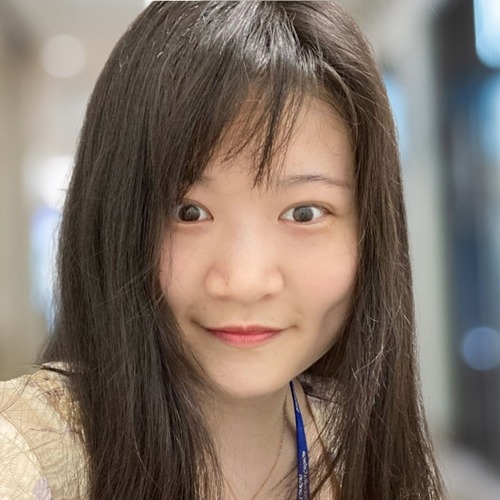 Zhenzhu Li Imperial College London, UK
Zhenzhu Li Imperial College London, UKDr. Zhenzhu Li is an AI in Science Fellow at Imperial College London. Her research lies at the intersection of computational materials science and artificial intelligence, with a focus on solar energy materials. She is particularly interested in defect physics, growth conditions, recombination-limited photovoltaic performance, and the inverse design of novel photovoltaic materials through generative AI models. Dr. Li has published extensively in leading scientific journals, including Nature Materials, Nature Communications, Advanced Functional Materials, Energy Storage Materials, and Matter. She is a recipient of the 2021 Young Researcher Award from the International Conference on Advanced Materials and Devices (ICAMD) and was awarded the prestigious Eric and Wendy Schmidt AI in Science Fellowship at Imperial College London. Looking ahead, her research aims to address the urgent need for AI-driven materials discovery by elucidating defect–structure–property relationships and advancing intelligent generative frameworks for next-generation photovoltaic materials.
-
Available On Demand
Session II: Generative AI Powered Discovery
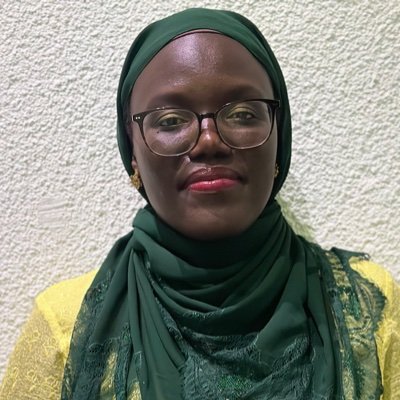 Adji Bousso Dieng Princeton University, USA
Adji Bousso Dieng Princeton University, USAAdji Bousso Dieng is an Assistant Professor of Computer Science at Princeton University where she leads Vertaix on research at the intersection of artificial intelligence and the natural sciences. She is affiliated with the Chemical and Biological Engineering Department, the Princeton Materials Institute, the Princeton Quantum Initiative, the Princeton Plasma Physics Laboratory, and the High Meadows Environmental Institute (HMEI) at Princeton. She is also the founder of the nonprofit The Africa I Know. She has been recently named a Distinguished Early Career Presenter at the MRS Meeting, One of 10 African Scholars to Watch by The Africa Report, an Outstanding Recent Alumni by Columbia University's Grad School of Arts and Sciences, an AI2050 Early Career Fellow by Schmidt Futures, and as the Annie T. Randall Innovator of 2022 for her research and advocacy by the American Statistical Association. Dieng received her Ph.D. from Columbia University. Her doctoral work received many recognitions, including a Google Ph.D. Fellowship in Machine Learning, a rising star in Machine Learning nomination by the University of Maryland, and a Savage Award from the International Society for Bayesian Analysis, for her doctoral thesis. Dieng's research has been covered in media such as the New Scientist. She hails from Kaolack, Senegal.
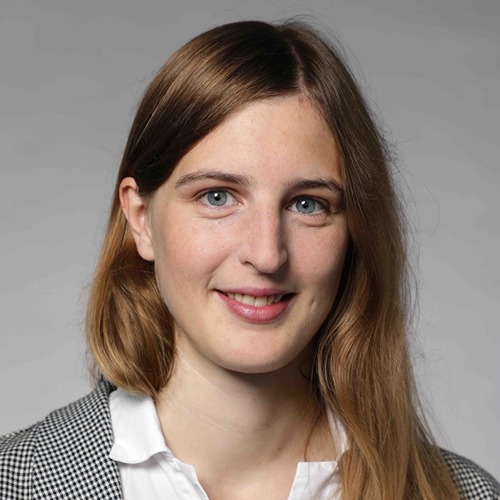 Charlotte Bunne EPFL, Switzerland
Charlotte Bunne EPFL, SwitzerlandCharlotte Bunne is an assistant professor at EPFL in the School of Computer and Communication Sciences (IC) and School of Life Sciences (SV). She is part of the Swiss Institute for Experimental Cancer Research (ISREC) and the EPFL AI Center. Before, she was a PostDoc at Genentech and Stanford working with Aviv Regev and Jure Leskovec and completed a PhD in Computer Science at ETH Zurich working with Andreas Krause and Marco Cuturi. During her graduate studies, she was a visiting researcher at the Broad Institute of MIT and Harvard hosted by Anne Carpenter and Shantanu Singh and worked with Stefanie Jegelka at MIT. Charlotte has been a Fellow of the German National Academic Foundation and is a recipient of two ETH Medals.
 Zhongyue John Yang Vanderbilt University, USA
Zhongyue John Yang Vanderbilt University, USAZhongyue John Yang is the SC Family Dean’s Faculty Fellow, Assistant Professor of Chemistry, Chemical and Biomolecular Engineering at Vanderbilt University. He graduated from the inaugural Chemistry Po-Ling program at Nankai University in 2013, earned his Ph.D. in Theoretical and Computational Chemistry with Ken Houk at UCLA in 2017, and undertook postdoctoral training with Heather Kulik in the Department of Chemical Engineering at MIT from 2018 to 2020. Since fall 2020, he has started his independent research group at Vanderbilt and has published 31 peer-reviewed papers as an independent investigator.
His group seeks to redefine protein engineering by anchoring it in molecular-level physical principles (Nat. Comput. Sci. 2025). They established Mutexa, a physics-augmented AI platform for predicting and designing beneficial protein variants (J. Chem. Theory Comput. 2023). Leveraging Mutexa, they established in silico tools for predicting the outcome of enzyme-catalyzed hydrolytic kinetic resolution (Chem. Sci. 2023), modifying enzymatic specificity (Chem. Catalysis 2025), designing cold adapted bidomain amylases (Angew. Chem. Int. Ed. 2025), predicting 3D structures of lasso peptides (Nat. Commun. 2025), and so on. His research is funded by U.S. National Science Foundation, National Institute of Health, and Rosetta Commons. He is a recipient of NIH MIRA Award in 2022, Robin Hochstrasser Young Investigator Award in 2023, and ACS OpenEye Junior Faculty Award in Computational Chemistry in 2024. He is a member of the Early Career Board for the Journal of Chemical Theory and Computation by the ACS Publications. Haiping Lu University of Sheffield, UK
Haiping Lu University of Sheffield, UKHaiping Lu is a Professor of Machine Learning at the University of Sheffield, UK, where he leads AI Research Engineering at the Centre for Machine Intelligence. He is also Director of the UK Open Multimodal AI Network (UKOMAIN), funded by the UK’s Engineering and Physical Sciences Research Council (EPSRC). His research focuses on translational multimodal AI, integrating diverse types of data to tackle challenges in healthcare and scientific discovery, with methodological interests in foundation models, generative AI, domain adaptation, and transfer learning.
His recent work spans brain and cardiac imaging, cancer diagnosis, protein design, and drug and materials discovery. He leads the development of PyKale, an open-source Python library for knowledge-aware machine learning. He serves as an Associate Editor for IEEE Transactions on Neural Networks and Learning Systems and IEEE Transactions on Cognitive and Developmental Systems, and has received awards from the Alan Turing Institute, Amazon, the Wellcome Trust, and the UK’s National Institute for Health and Care Research. -
Available On Demand
Short talks & Panel Discussion
Panel Discussion – AI ethics
Chair: Anita Chandran (Nature Communications, UK)
Panelists:
Trenton Jerde (Nature Machine Intelligence, US)
Yann Sweeney (Nature, UK)
Manel Mondelo (Nature Communications, Germany)
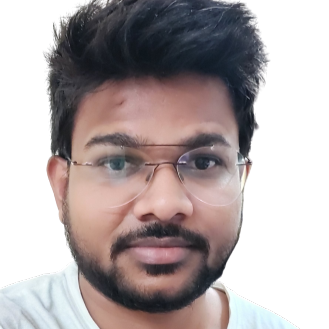 Deepak Chaurasiya Indian Institute of Information Technology Allahabad, India
Deepak Chaurasiya Indian Institute of Information Technology Allahabad, IndiaDeepak Chaurasiya received his M.Tech degree in Animal Biochemistry from ICAR–National Dairy Research Institute, Karnal, India, in 2020, PG Diploma in Intellectual Property Rights from Indira Gandhi National Open University, and his B.Tech degree in Biotechnology from Dr. A.P.J. Abdul Kalam Technical University, Lucknow, India, in 2016. He is currently pursuing a Ph.D. degree in Bioinformatics at the Indian Institute of Information Technology Allahabad (an Institute of National Importance), Prayagraj, India. In 2020, he worked as a Junior Project Associate at the Translational Health Science and Technology Institute (THSTI), Faridabad, contributing to SARS-CoV sero-surveillance projects. Since 2023, he has been a Senior Research Fellow in the Biomedical Informatics Lab, Department of Applied Sciences, IIIT Allahabad, where his research focuses on computational biology and machine learning approaches for the study of intrinsically disordered proteins (IDPs). His work includes developing novel predictors for disordered regions, exploring IDP-linked viral proteins, and investigating therapeutic targets in disease-related IDPs. His broader research interests include protein structural biology, molecular modeling, IDP functional annotation, and ML-driven biomedical applications.
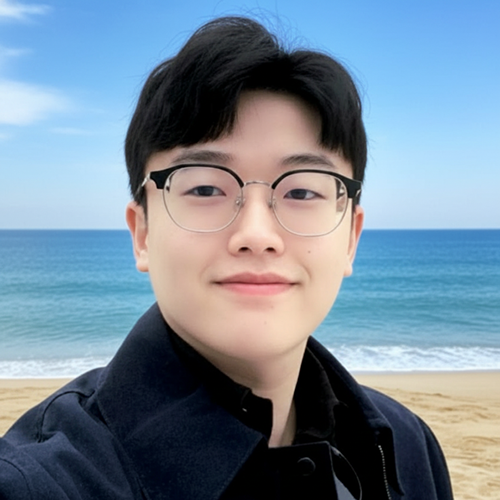 Xiangyu Cao Hanyang University,Korea
Xiangyu Cao Hanyang University,KoreaMr. Cao is a Ph.D. candidate in the Department of Chemical Engineering at Hanyang University and received his B.Eng. degree from South China University of Technology. His research combines machine learning and ensemble learning approaches to accelerate the design and optimization of functional materials for next-generation energy storage and conversion devices. He further focuses on the scalable synthesis of metal–organic frameworks (MOFs) and transition metal compound composites for energy-related applications, with related works published in Small and Chemical Engineering Journal.
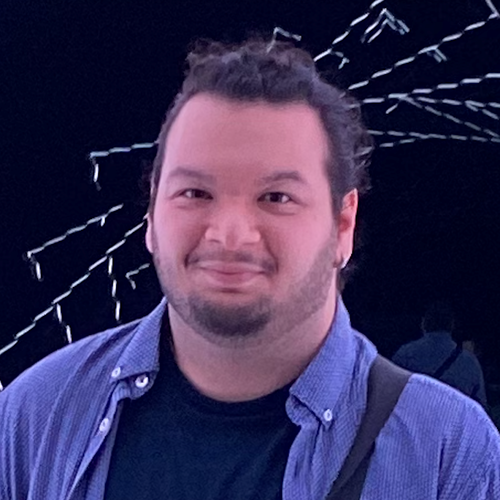 Taner Karagöl Istanbul University Medical Faculty, Turkey
Taner Karagöl Istanbul University Medical Faculty, TurkeyTaner Karagöl is a researcher and last-year medical student (Doctor of Medicine) at Istanbul University Medical Faculty. He has collaborated with leading researchers, including Shuguang Zhang at Massachusetts Institute of Technology (MIT). He was a visitor at the Royal Free Hospital London, UCL Medical School for 6 months working with Structural Immunology Group, UCL. With his twin brother Alper Karagöl, their work aims to bridge the disciplines of structural biology, neuroscience, immunology, artificial intelligence, bioinformatics and other fields of biomedical research to advance our understanding of molecular/evolutionary mechanisms and develop innovative therapeutic approaches. Karagöl had worked on water-soluble variants of neurotransmitter transporters and immunomodulatory proteins. By analyzing millions of amino acid substitutions in transmembrane proteins, he maps evolutionary pressures shaping protein function, with major implications for drug resistance and bioengineering. In addition to identifying natural QTY-code substitutions, a key contribution of his work is the identification of truncated isoforms with evolutionary significance. Karagöl has authored multiple peer-reviewed articles on protein evolution, transmembrane structure prediction, and asymmetric mutational dynamics. He has four pending patents on protein design and truncated isoforms. He was admitted to medical school with top-tier distinction and has received several medical educational scholarships and numerous awards, including Dean’s Award for Scientific Excellence and Turkish Scientific Research Council International Scientific Meetings Fellowship in 2024. Beyond academic pursuits, he is engaged in scientific advocacy work, focusing primarily on planetary health and public engagement of science.
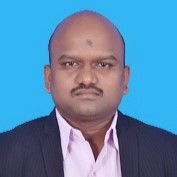 Muthuchamy Murugavel SRM University Sikkim, Gangtok, INDIA
Muthuchamy Murugavel SRM University Sikkim, Gangtok, INDIADr. Muthuchamy Murugavel is a seasoned chemist and academic leader specializing in porphyrin and corrole chemistry, with a strong focus on the design, synthesis, and photophysical characterization of porphyrinoid systems and their metal complexes. He has built a robust research portfolio spanning the synthesis of organic π-conjugated materials to carbaporphyrins and Multimetallic assemblies, underpinned by deep expertise in coordination chemistry and molecular design. Currently serving as Assistant Professor, Department of Chemistry, School of Basic Sciences, SRM University Sikkim (Gangtok, INDIA).
Research and scholarly contributions
- Pioneered the construction of porphyrin-corrole and corrole-porphyrin hybrids, exploring their photophysical and electrochemical properties, and developed metal complexes with homo- and hetero-trinuclear architectures.
- Advanced the study of carbaporphyrins, including PtCl2-mediated transformations that reveal meso-fused dimers with extended π-conjugation.
- Developed and evaluated image-based machine learning methods to surpass the limitations of the Beer-Lambert law, enabling concentration predictions for unknown samples without conventional spectroscopy.
Selected publications and notable achievements
- Notable papers across journals such as Chem. Eur. J., RSC Advances, Org. Lett., Chem. Commun., and ACS Omega.
- Noteworthy methods include the synthesis of porphyrinoid hybrids, stabilization of different metal ions within a single scaffold, and ML-assisted chemical analysis that challenges traditional spectroscopic limits.
Contact
Dr. Muthuchamy Murugavel
Assistant Professor
Department of Chemistry, School of Basic Sciences
SRM University Sikkim, Tadong, Gangtok, East Sikkim-737102
Email: Muthuchamy.m@srmus.edu.in
Website: Shri Ramasamy Memorial(SRM) University Sikkim (SRMUS)
-
Available On Demand
Welcome remarks, Meet-the-editor & Session III
Meet-the-editor Session:
Chair: Anita Chandran (Nature Communications, UK)
Panelists:
William Henson (Nature Machine Intelligence, UK)
Manel Mondelo (Nature Communications, Germany)
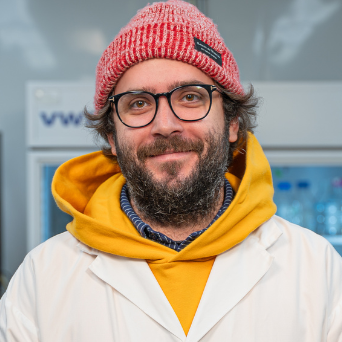 Jonathan Stokes McMaster University, Canada
Jonathan Stokes McMaster University, CanadaJon is an Assistant Professor in the Department of Biochemistry and Biomedical Sciences at McMaster University. His research focuses on the development and application of leading-edge machine learning techniques for novel drug discovery and design tasks, with an emphasis on antibacterial, antiviral, and neuro-oncology agents. Jon is also co-founder and CSO of Stoked Bio.
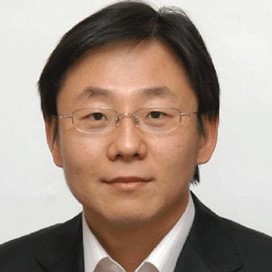 Jiangning Song Monash University, Australia
Jiangning Song Monash University, AustraliaJiangning Song is a Full Professor and Head of the AI-driven Bioinformatics and Biomedicine Laboratory in the Monash Biomedicine Discovery Institute (BDI), Monash University, Australia. He is also an Associate Investigator of the ARC Centre of Excellence in Advanced Molecular Imaging, and an affiliated member of the Monash AI Institute. He has a career total of 351 publications in international journals with ~15100 citations, H-index of 64 and i10-index of 250 in Google Scholar as of 22 September 2025. He has published extensively in top-tier journals, e.g. Cell, Nature Biotechnology, Nature Methods, Lancet Oncology, Nature Machine Intelligence, Nature Computational Science, Nature Sustainability, Nature Communications, Lancet Planetary Health, Science Immunology, Science Advances, Cell Genomics, Cell Reports, Nucleic Acids Research, Genomics Proteomics and Bioinformatics, Briefings in Bioinformatics, and Bioinformatics. He is currently an Associate Editor of several international journals including IEEE Journal of Biomedical and Health Informatics, BMC Bioinformatics, Genomics, Proteomics & Bioinformatics, and BMC Genomic Data. He is motivated to design, develop, and deploy cutting-edge data-driven methodologies and techniques to better understand and address a range of open and challenging scientific questions in biomedicine.
-
Available On Demand
Session IV: Self-driving Laboratories
 Melodie Christensen Merck, USA
Melodie Christensen Merck, USAMelodie Christensen serves as a Director in the Merck Process Research & Development Enabling Technologies Data-Rich Experimentation group. She earned her Master of Science in Chemistry from the American University in 2004 and began her professional journey as a process chemist at Schering-Plough Research Institute in 2005.
In 2010, Melodie joined Merck's Catalysis and Automation group, where she focused on high-throughput experimentation and laboratory automation. Her dedication to continuous learning and professional growth led her to pursue a PhD in Chemistry at the University of British Columbia, which she completed in 2022 under the guidance of Professor Jason Hein. Her doctoral research explored the integration of data science with custom laboratory automation, contributing to advancements in self-driving labs.
Melodie is deeply committed to fostering a collaborative and supportive environment for her team, encouraging them to explore and innovate within the realm of data-rich experimentation. Outside of her professional life, she enjoys yoga, container gardening, flower arranging, and culinary pursuits, which provide her with balance and inspiration. Jun Jiang University of Science and Technology of China, China
Jun Jiang University of Science and Technology of China, ChinaProf. Jun Jiang is a distinguished professor of physical chemistry at the University of Science and Technology of China (USTC), within the School of Chemistry and Materials Science. He earned a Ph.D. in Theoretical Chemistry from the Royal Institute of Technology, Sweden, in 2007, and another Ph.D. in Solid State Physics from the Shanghai Institute of Technical Physics, Chinese Academy of Science, in 2008, following a B.S. degree from WuHan University in 2000. He has published more than 150 papers in prestigious journals including Nature Synthesis, Nature Energy, J. Am. Chem. Soc., Angew. Chem. Int. Ed. Dr. Jiang is a recipient of the “National Science Fund for Distinguished Young Scholars in China”, and has won the “Young Theoretical Chemistry Investigator Award of Chinese Chemistry Society”, “Distinguished Lectureship Award of the Chemical Society of Japan 2020”.
Jiang’s research interests focus on the development and application of theoretical chemistry methods and machine learning techniques in chemistry science. By integrating robotic experiments, quantum chemistry simulations, and artificial intelligence guided predictions, his group has developed a data-driven robotic AI-chemist platform, targeting on a wide range of chemistry and material studies such as Photocatalysis, Biochemistry, Photochemistry, Molecular electronics and photonics. His recent works have demonstrated that generative AI combined with spectroscopic descriptors, has the potential to revolutionize chemical material design by overcoming the constraints of conventional atomic-coordinate-based descriptors, leading to a new way to combine generative AI and mobile robots for the intelligent discovery of new chemicals/materials. For more in-depth information about his research works, his personal homepage (http://staff.ustc.edu.cn/~jiangj1/) and dedicated research platforms might provide additional insights.
-
Available On Demand
Short talks and closing remarks
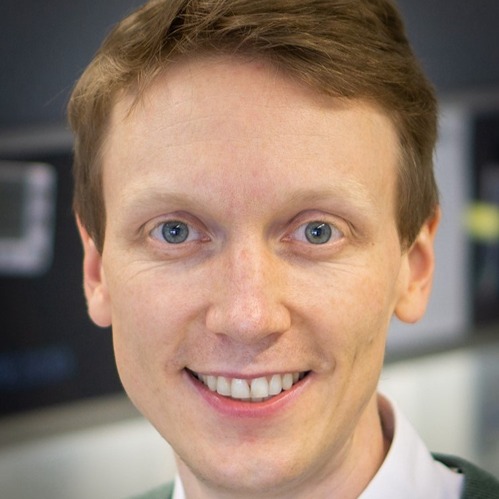 Jona Kayser Max Planck Zentrum für Physik und Medizin, Germany
Jona Kayser Max Planck Zentrum für Physik und Medizin, GermanyDr. Jona Kayser is an Emmy Noether Research Group Leader at the Max Planck Zentrum für Physik und Medizin (MPZPM) in Erlangen, Germany. His group bridges physics and medicine using artificial intelligence to understand and steer the evolution and therapy dynamics of solid tumors. By integrating quantitative imaging, cellular biophysics, and machine learning, his research aims to reveal emergent physical mechanisms, such as collective cell motion and spatial organization, shape therapy resistance and to design adaptive treatment strategies guided by physics-based AI models. Before establishing his independent group, Jona was a DFG Research Fellow at the University of California, Berkeley, and completed his PhD in biophysics at the Technical University of Munich.
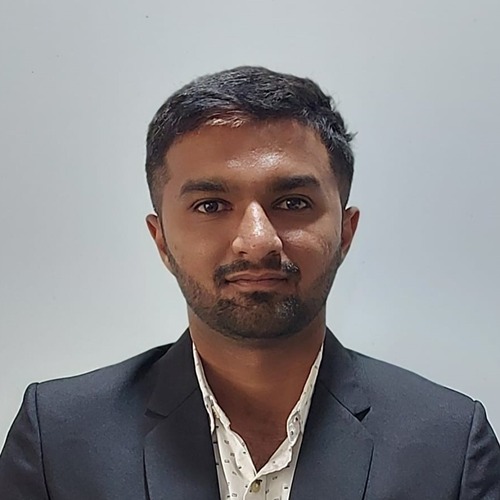 Ujban Hussain RTM Nagpur University, India
Ujban Hussain RTM Nagpur University, IndiaUjban Hussain obtained his Master of Pharmacy (M.Pharm) degree in Pharmaceutics from the Department of Pharmaceutical Sciences, Rashtrasant Tukadoji Maharaj Nagpur University, Nagpur, India, in 2025. His research focuses on the integration of artificial intelligence, nanotechnology, and translational pharmaceutics to accelerate drug discovery and improve therapeutic delivery, particularly in central nervous system (CNS) drug administration. Since commencing his research career in 2024, he has co-authored over twenty-five international publications in high-impact Q1–Q2 journals and presented his work at multiple national and international scientific conferences. His contributions have been recognized through more than a dozen academic and innovation awards across twelve conferences, including distinctions from the VIDC, ASTHIBPS 2024, and the Smart India Hackathon. His broader research interests encompass AI-driven research automation, computational pharmaceutics, and data-guided strategies for advanced drug delivery design.
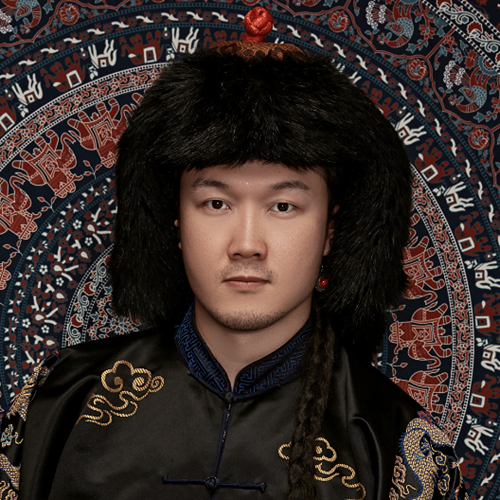 He Wang University of Chinese Academy of Sciences (UCAS), China
He Wang University of Chinese Academy of Sciences (UCAS), ChinaHe Wang received his Ph.D. in Theoretical Physics from Beijing Normal University in 2020. After graduation, he held postdoctoral positions at the Institute of Theoretical Physics, Chinese Academy of Sciences; Peng Cheng National Laboratory (as a visiting scholar); and the University of Chinese Academy of Sciences.
Dr. Wang’s research integrates theoretical physics, data science, and artificial intelligence, focusing on gravitational-wave astronomy, machine learning for astrophysical signal processing, and AI-assisted scientific discovery. As a member of the LIGO–Virgo–KAGRA (LVK) collaboration and co-chair of its Machine Learning Working Group (MLA), he contributes to international efforts in data analysis, noise modeling, and algorithmic innovation.
He has published over 30 papers in leading journals and currently plays a key role in the Taiji space-based gravitational-wave mission, leading research on data analysis and machine learning-driven signal processing. Ultimately, his work aims to accelerate scientific discovery by harnessing advanced technologies—including large language models (LLMs)—to deepen our understanding of the universe.
